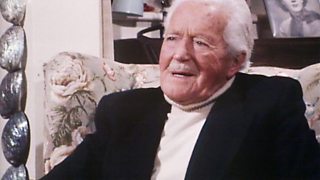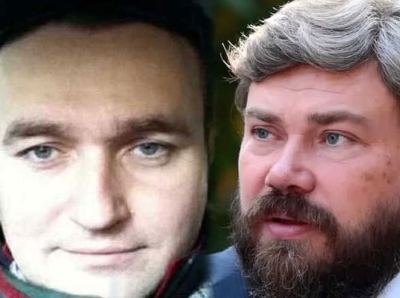Titanic survivor recalls disaster: ‘I shall probably dream about it tonight’
More than a century since the Titanic sank on its maiden voyage, this first-person testimony of survivor Frank Prentice remains a powerful and harrowing account of the sheer terror felt by those on board.
Frank Prentice was 23 when he survived the sinking of the Titanic. When interviewed by the BBC 67 years later, it was clear he was still haunted by that terrible night. More than 1,500 people died when the Titanic struck an iceberg in the Atlantic Ocean on 14 April 1912, causing the boat to sink.
Mr Prentice was working as an assistant purser, handling money and supplies aboard the ship on its maiden voyage. Reliving the events of that night on the 1979 BBC documentary series The Great Liners, he recalled the moment when he first thought something might be wrong.
"There was no impact as such," he said. "It was just like jamming your brakes on the car and that was that – she stopped. We had a porthole open and I looked out and the sky was clear, stars were shining, the sea was dead calm and I thought, I couldn’t understand it."

WATCH: ‘I should probably dream about it tonight. Have another nightmare’.
When Mr Prentice left his cabin to go out on deck to investigate, he could see some ice but there was no sign of the iceberg or any damage above the waterline. Underneath the surface, however, the damage to the supposedly unsinkable ship was catastrophic.
The order came for women and children to get into the lifeboats, but Mr Prentice said there were two reasons why many were reluctant: it was a 70-ft (21.3m) drop into the water, and they never thought the ship would actually sink.
"Don’t forget we had 16 lifeboats and they each carried 50, and if they’d been filled we could’ve saved 800 whereas we only saved 500," he said.
Mr Prentice and a few other men were ordered to fetch all the biscuits they could carry from the storeroom. By the time they got back on deck, the ship was listing badly and he couldn’t scramble his way to reach the lifeboats. As he hurried to put on his life jacket, the ship was sinking fast and panic was rising as passengers from third class crowded onto the decks.
And then the Titanic broke in two.
"All of a sudden, she lifted up quickly and you could hear everything crashing through her," he said.
More like this:
• How TV’s strangest detective was born
• The man who saved 669 children from the Nazis
• Why The Godfather was a stark warning for the US
Mr Prentice was clinging to a board as half of the stricken ship rose high out of the water. He had no option but to let go and plunge in. "I had a lifebelt on and I hit the water with a terrific crack," he said. Afloat in the icy ocean among "bodies all over the place", he watched as the ship disappeared beneath the water. He said he didn’t want to die but he "didn’t see much chance of living".
"I was gradually getting frozen up, and by the grace of God I came across a lifeboat and they pulled me in," he said.
As he looked around, he found himself sat beside Virginia Estelle Clark, a familiar face from back on deck where he had helped a young honeymooning couple with their life jackets. He had persuaded Mrs Clark to leave her new husband Walter behind and get into a lifeboat, reassuring her that he was sure to follow later. Mrs Clark asked Mr Prentice if he had seen her husband. It later emerged that he was one of the dead.
In History
In History is a series which uses the BBC’s unique audio and video archive to explore historical events that still resonate today.
Mr Prentice said he was almost "frozen solid" and he believed Mrs Clark had probably saved his life by wrapping a cloak around him. "I saved hers – I think I might have done, I think I did, and she saved mine," he said.
The RMS Carpathia was almost 60 miles (96.5km) away when its wireless operator picked up the Titanic’s distress call. It immediately changed direction and would bring about 700 survivors to safety in New York.
Mr Prentice died in 1982 at the age of 93. For the rest of his life, he held on to a keepsake that was a vivid reminder of the tragedy that cast a shadow over his life as a young man. The watch he wore that night remained frozen in time, stopped at 02:20. "It was frozen up like I was – I think it lasted for about 20 minutes in the water," he said.
Asked if he was bothered by talking about the Titanic now, he said: "I shall probably dream about it tonight; have another nightmare.
"You’d think I’m too old for that, but you’d be amazed. You lie in bed at night and the whole thing comes round again."
--
For more stories and never-before-published radio scripts to your inbox, sign up to the In History newsletter, while The Essential List delivers a handpicked selection of features and insights.
If you would like to comment on this story or anything else you have seen on BBC Culture, head over to our Facebook page or message us on X.










